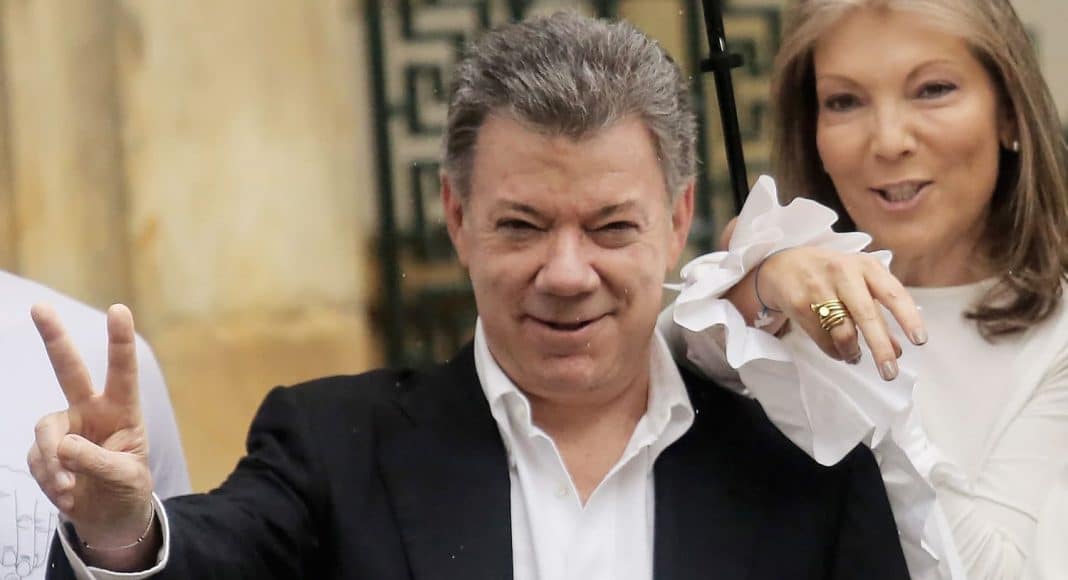Colombian President Juan Manuel Santos was the surprise winner of the 2016 Nobel Peace Prize, awarded to him on Friday for his continuing commitment to end his nation’s 60-year civil war.
More than 220,000 people have been killed and untold millions of poor farmers have been moved off their land. Although the war is far from over — Colombia voters just last weekend rejected a plan for peace with FARC rebels — Santos’ efforts caught the attention and admiration or the Norwegian Nobel Committee.
For global citizens who are tired of the trillion-dollar War on Drugs, fueled mostly with American dollars, Santos stood as a symbol of reform. He is one of the first leaders on the world stage to articulate a cogent plan to end the War on Drugs with sensible compromise.
Last December, Santos signed a ground-breaking presidential decree legalizing marijuana for medical purposes. For years, Colombia marched in lockstep with U.S. in the global battle against drugs.
The new regulations “represent a major step that put Colombia at the vanguard and forefront of the fight against illnesses,” Santos said during the signing ceremony.
If anybody knows about the horrors of the drug war, it is Santos. For decades, his nation has served as Ground Zero on this exorbitantly expensive battle. And status quo policies have done little to solve the problem, in fact it has exacerbated it.
The Nobel Committee awarded the prize to Santos primarily because of his attempts at ending civil strife in Colombia. But his efforts in ending the drug war will help the world.
Here are four reasons marijuana enthusiasts love the latest Nobel Prize winner:
A moral authority
Earlier this year, Santos wrote an essay in The Guardian explaining his bold position against an unfair drug policy. He wrote:
“We have done much, but this cannot be an effort by one country alone. Vested with the moral authority of leading the nation that has carried the heaviest burden in the global war on drugs, I can tell you without hesitation that the time has come for the world to transit into a different approach in its drug policy.”
It’s a human rights issue
He makes the argument that drug policy must align with human rights and dignity:
“A policy to confront the world drug problem must include the provisions of the international human rights conventions along with the drug control conventions. Both sets of legal instruments share an ultimate goal, which is preserving the “health and wellbeing of humanity”. Under this principle, we expect to progress in preventing the stigmatisation of drug users, abolishing the death penalty for drug-related offences and obligatory treatments for drug abusers, among other measures.”
End the prison-industrial complex
“We need to introduce a public health framework to the treatment of drug consumption focusing on prevention, attention, rehabilitation and re-socialization of drug abusers. We must adopt alternatives to prison for drug-related offences, depending on the severity of the offence, and prioritising an effective rehabilitation and re-socialization of offenders. We need to provide social and economic alternatives to small growers of illegal crops and other vulnerable communities in order to create the necessary conditions to bring them back to legality.”
He’s one of us
Santos openly admits to smoking pot in the 1970s as a journalism student at the University of Kansas. Sounds like another leader we know.


